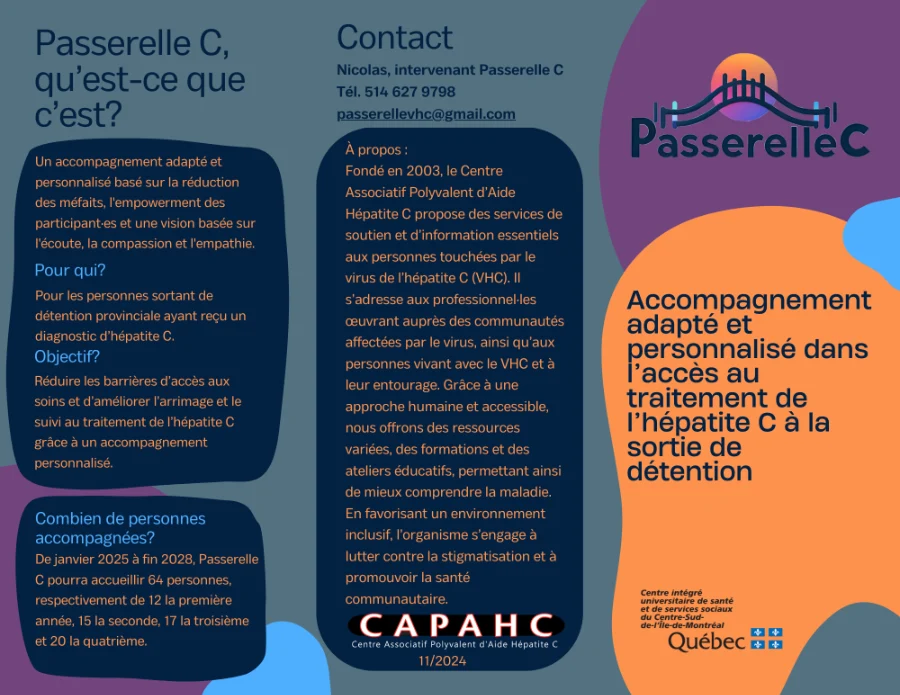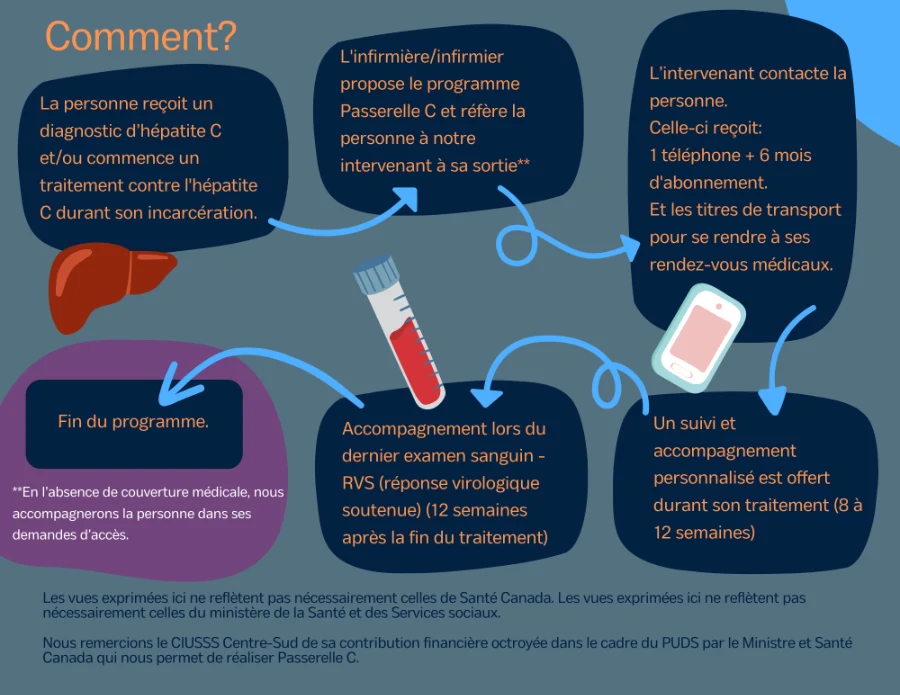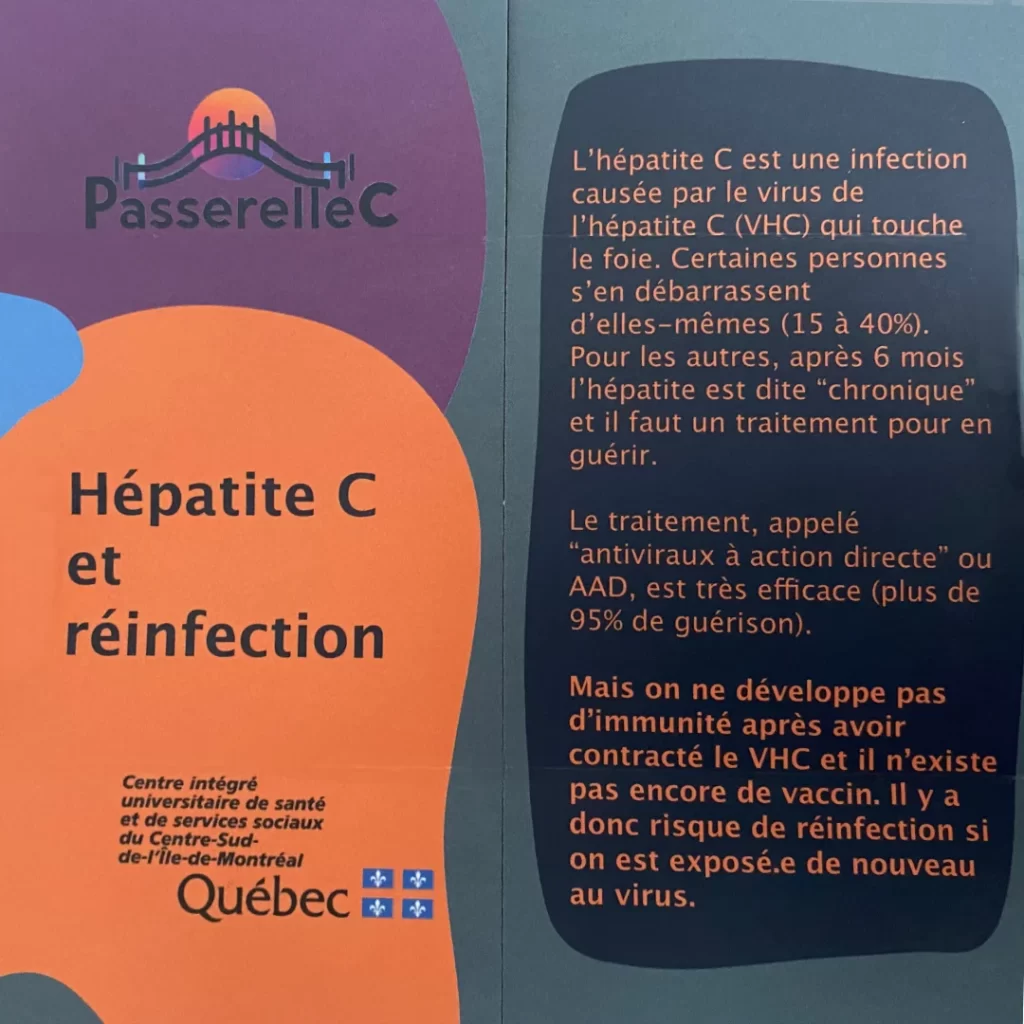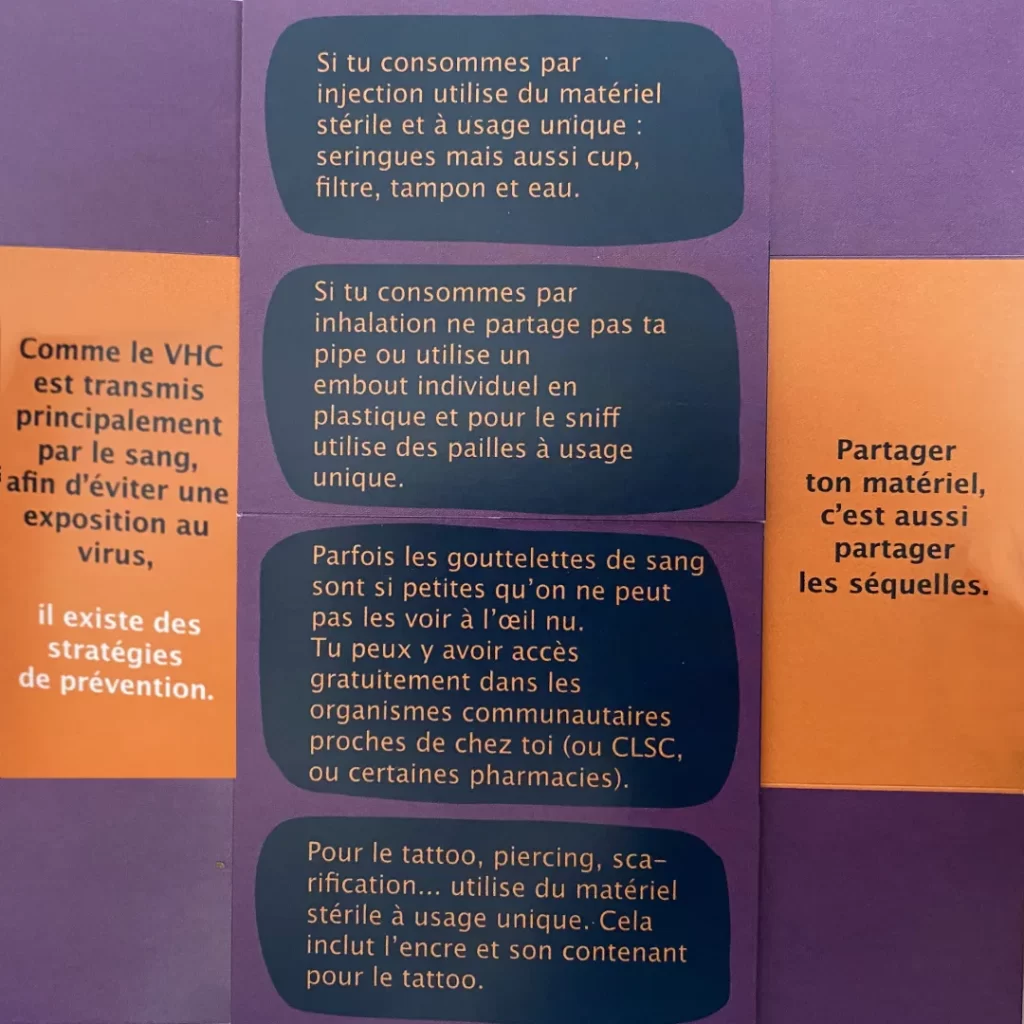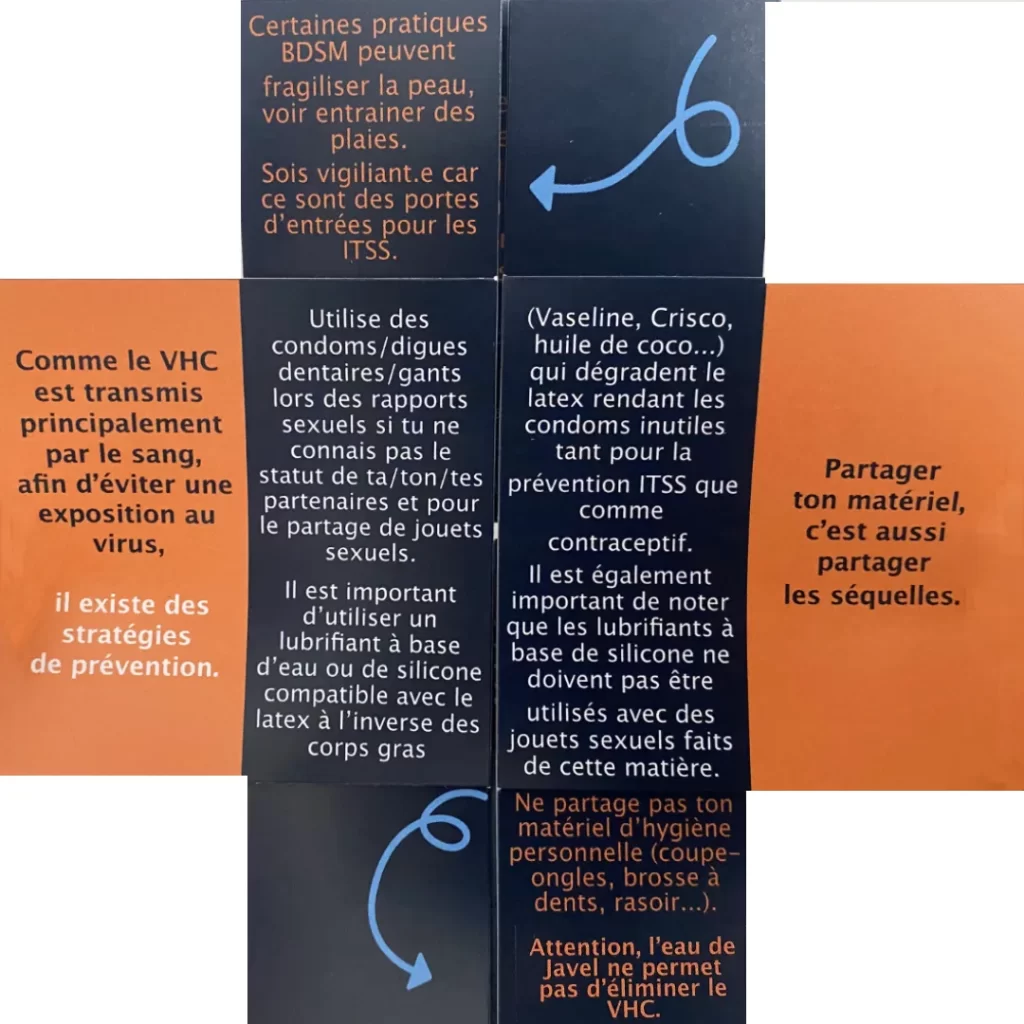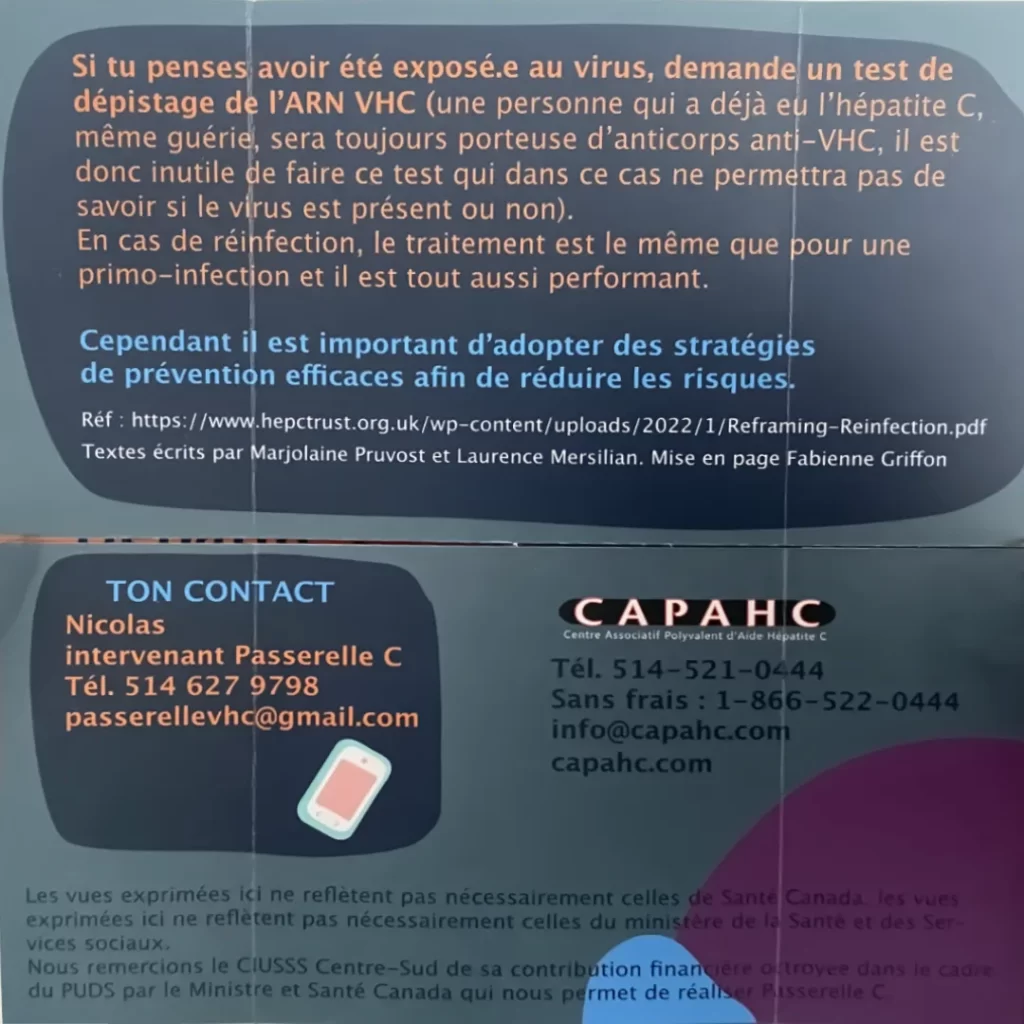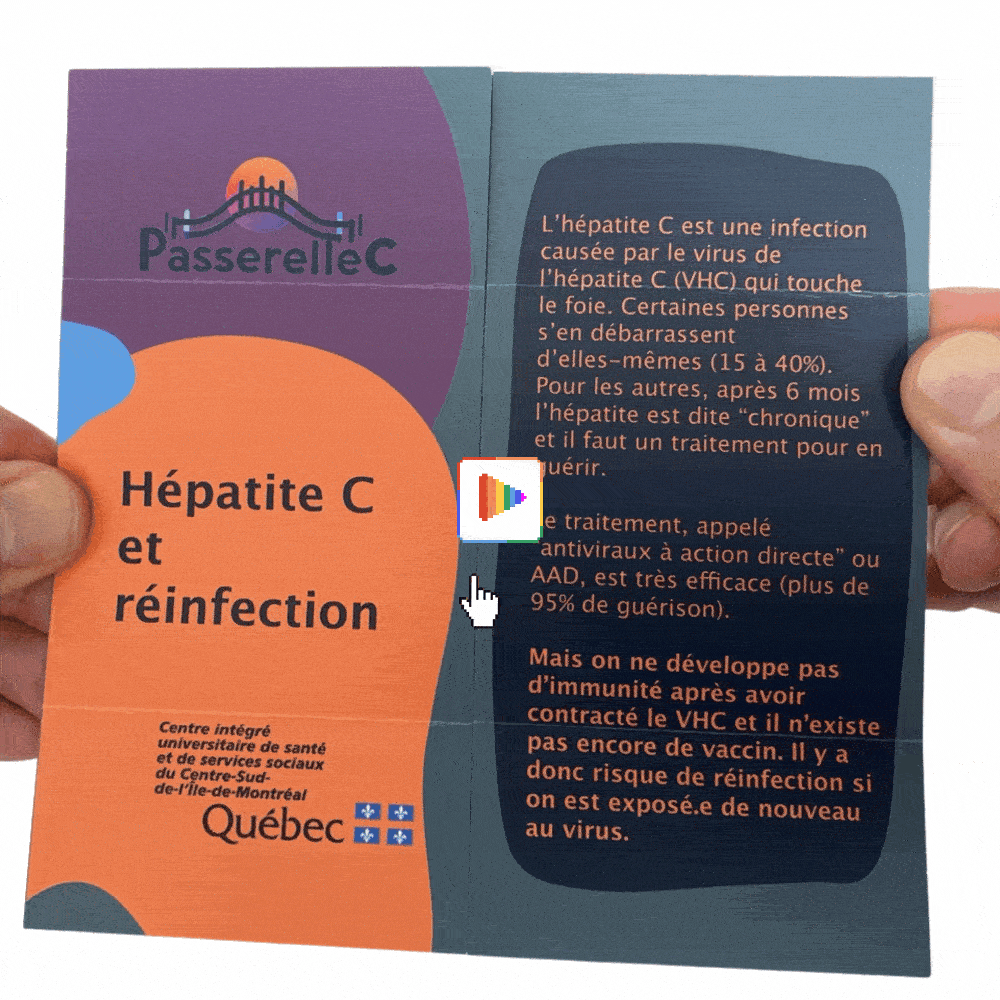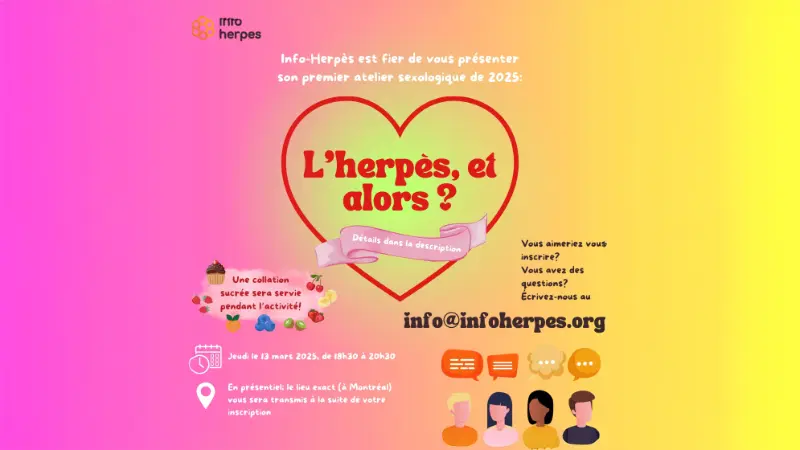Your reference for hepatitis C in Quebec

This program proposes to support people leaving provincial detention with a diagnosis of hepatitis C, who may or may not have started their treatment, towards a care corridor in the community, or people who have finished their treatment in detention, but who still need to undergo the final test confirming cure, 3 months after stopping treatment.
The accompaniment provided by our intervener will be based on harm reduction, participant empowerment and a vision based on listening, compassion, empathy and an individualized approach. Participants will also be supported in related health care, substance use disorders and psychosocial support by referrals according to the reception capacities of our knowledgeable partners with experience with the target populations.
To help ensure the success of the treatment and any other steps they may wish to take as part of their support, participants will receive a cell phone with a six-month paid plan, as well as public transit passes.
Our goal at CAPAHC is to reduce barriers to accessing care, improve adherence to hepatitis C treatment, and enhance follow-up, thanks to personalized support. We aim for 90% of participants to achieve a sustained virological response, meaning a negative viral load three months after completing treatment.is to reduce barriers to accessing care, improve adherence to hepatitis C treatment, and enhance follow-up, thanks to personalized support. We aim for 90% of participants to achieve a sustained virological response, meaning a negative viral load three months after completing treatment.
From January 2025 to the end of 2028, Passerelle C will provide accompaniment for 64 people divided into 4 groups: 12 in the first year, 15 in the second, 17 in the third and 20 in the fourth. During the 3rd year of the project, it will be presented in six different regions of Quebec, to encourage regional deployment of the program. An in-house document on the risks of reinfection will be designed and widely distributed.
This 4-year project is the fruit of close collaboration with the SIDEP nurses at the 3 detention centers in Montreal, Bordeaux, Leclerc and Rivière-des-Prairies, and of existing partnerships with health care corridors in particular. The Agora clinic and the CHUM. It is funded by the French Ministry of Health and Social Services (MSSS) as part of the PUDS projects (Substance Use and Dependence Program 2024-2028).
If you have any questions about this program, please contact us at :
passerelle-c@capahc.com .


